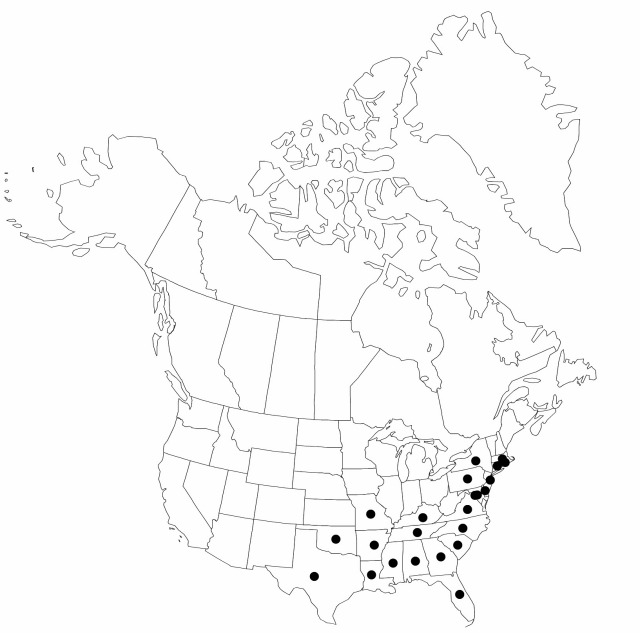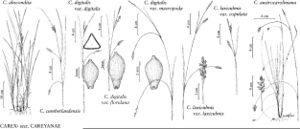Difference between revisions of "Carex abscondita"
Bull. Torrey Bot. Club 37: 244. 1910.
FNA>Volume Importer |
imported>Volume Importer |
||
| (6 intermediate revisions by 2 users not shown) | |||
| Line 7: | Line 7: | ||
|year=1910 | |year=1910 | ||
}} | }} | ||
| − | |basionyms={{Treatment/ID/ | + | |special_status={{Treatment/ID/Special_status |
| + | |code=F | ||
| + | |label=Illustrated | ||
| + | }}{{Treatment/ID/Special_status | ||
| + | |code=E | ||
| + | |label=Endemic | ||
| + | }} | ||
| + | |basionyms={{Treatment/ID/Basionym | ||
|name=Carex ptychocarpa | |name=Carex ptychocarpa | ||
|authority=Steudel | |authority=Steudel | ||
| + | |rank=species | ||
| + | |publication_title=Syn. Pl. Glumac., | ||
| + | |publication_place=234. 1855, | ||
}} | }} | ||
|synonyms= | |synonyms= | ||
| Line 34: | Line 44: | ||
-->{{#Taxon: | -->{{#Taxon: | ||
name=Carex abscondita | name=Carex abscondita | ||
| − | |||
|authority=Mackenzie | |authority=Mackenzie | ||
|rank=species | |rank=species | ||
| Line 48: | Line 57: | ||
|publication title=Bull. Torrey Bot. Club | |publication title=Bull. Torrey Bot. Club | ||
|publication year=1910 | |publication year=1910 | ||
| − | |special status= | + | |special status=Illustrated;Endemic |
| − | |source xml=https:// | + | |source xml=https://bitbucket.org/aafc-mbb/fna-data-curation/src/2e0870ddd59836b60bcf96646a41e87ea5a5943a/coarse_grained_fna_xml/V23/V23_814.xml |
|genus=Carex | |genus=Carex | ||
|section=Carex sect. Careyanae | |section=Carex sect. Careyanae | ||
Latest revision as of 20:43, 5 November 2020
Plants loosely or densely cespitose. Culms erect or ascending, 7–30 cm × 0.2–0.5 mm; vegetative shoots taller than culms, (1.4–)1.7–3.7(–4.9) times as tall as tallest flowering culm, blades of vegetative shoots 1–3.5 times wider than bract blades. Leaves: basal sheaths white to light brown; nonbasal sheaths 1–4 mm; blades erect, drooping or recurved, dark green to grayish blue-green, 11–38 cm × 3–9 mm, usually exceeding culms. Inflorescences: spikes (3–)4 per culm, scattered; peduncles of proximal pistillate spikes erect, 3–15 mm; bracts dark green to glaucous, 1–10.5 cm × 1.5–4 mm, well developed, blade of distal lateral spike 5.6–17(–26) times as long as wide. Pistillate spikes: proximal usually basal, proximal spikes on usually erect peduncles, distal sessile to very short-pedunculate, 6–12 × 3.5–6 mm, often hidden in foliage. Staminate spike sessile or nearly so, (3.5–)4.5–10.2(–11.5) × 0.6–1.4(–1.6) mm, often hidden by distal bract and/or pistillate spikes. Pistillate scales 1.5–2 × 0.8–1 mm, midribs green, margins hyaline, apex acute, proximal scales of lateral spikes subtending perigynia. Staminate scales 2.6–3.6(–3.8) × 0.8–1 mm, midribs green, margins hyaline, apex obtuse. Anthers 1.2–1.8 mm. Perigynia (3–)8–13 per spike, spirally overlapping, finely veined, obovoid, 2.8–4.2 × 1.4–2 mm; beak tapering. Achenes ellipsoid, 2.6–4 × 1.2–1.8 mm, sides flat at maturity, filling perigynia. Style short, tapering from swelling just beyond attachment to achene, bent, ascending through entire orifice.
Phenology: Fruiting summer.
Habitat: Rich, moist, wet slopes or bottomlands, deciduous or mixed deciduous-evergreen forests, on or just above flood plain of streams and rivers
Elevation: 0–600 m
Distribution

Ala., Ark., Conn., Del., D.C., Fla., Ga., Ky., La., Md., Mass., Miss., Mo., N.J., N.Y., N.C., Okla., Pa., R.I., S.C., Tenn., Tex., Va.
Discussion
Selected References
None.
